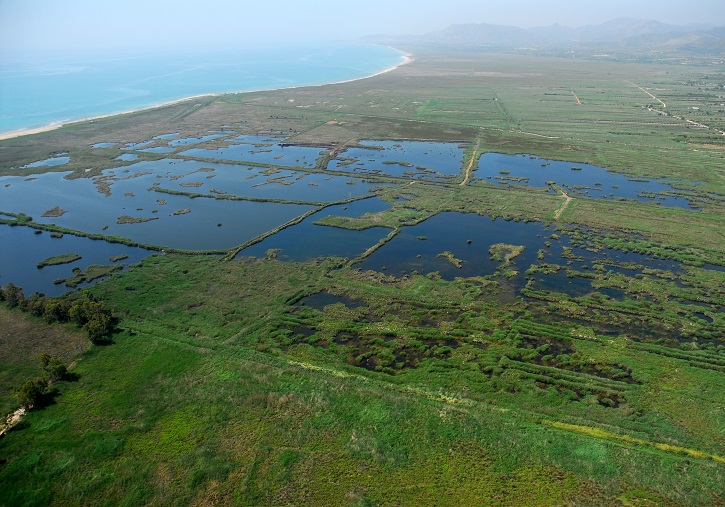
A team from the University of Valencia (UV) coordinated by Professor Antonio Camacho, an expert in wetlands functional ecology and climate change, leads the research in the LIFE Wetlands4Climate project to value the role of wetlands as carbon sinks and reducers of the amounts of greenhouse gases (GHG) in the atmosphere. The proposal, financed with two million euros, starts in the Valencian Community in a few weeks, in Prat de Cabanes-Torreblanca.
On February 2, World Wetlands Day is celebrated, a type of ecosystem that is key to life and which is disappearing at a rate three times higher than that of forest masses. Faced with the binding target for the European Union to reduce global carbon emissions by 55% by 2030 and be climate neutral by 2050, wetlands are a natural solution to help make this challenge more feasible thanks to their ability to fix carbon that would otherwise be in the atmosphere.
“The University of Valencia participates in the Wetlands4Climate project, analyses how much carbon a wetland is really capable of retaining based on its state of conservation and identifies which management measures are the most appropriate for each wetland so that they reach their maximum storage capacity and climate mitigation”, highlights Antonio Camacho.
The project is coordinated by the Global Nature Foundation and the UV will be in charge, in this sense, of developing the management management protocols and carrying out measurements and experiments in the field and in the laboratory to obtain an initial quality analysis of these ecosystems that will serve as a basis. With which to compare the results obtained after the implementation of the demonstration measures after the four years of the project.
This project opens for the first time an interesting scenario in which it is valued that the conservation of wetlands not only contributes to the conservation of biodiversity but can also be key in the fight against climate change.
In mid-February, the field sampling and measurement works of the pilot plots located in 10 wetlands of the Valencian Community, Castilla y León and Castilla La Mancha will begin, in which different demonstrative measures of vegetation management will be implemented, soil and water. The objective is to see how the carbon balances in each wetland behave with respect to each of these management measures, such as mowing, controlled grazing, management of water levels or soil tillage.
With the data obtained, a methodology that can be eligible for funds in the voluntary carbon market will be approved, based on the conservation of wetlands. These emission certification and verification activities encourage job creation and the implementation of new business models based on an alliance between humans and the rest of nature. “It will be a great achievement, since without this type of mechanism such high levels would not be reached in the investments planned in wetland management and conservation, necessary for wetlands to work as our allies in the fight against climate change”, he says Antonio Camacho.
Wetlands4Climate is a project supported by the European Commission through the LIFE financial instrument, coordinated by the Global Nature Foundation and executed in collaboration with partner entities such as the EFE Agency, the Valencia Climate and Energy Foundation, and the Cavanilles Institute of Biodiversity and Evolutionary Biology of the University of Valencia. This project also has, in its first phase, the support of the Ministry for the Ecological Transition and the Demographic Challenge, through the Biodiversity Foundation; the Regional Council for the Conservation of Natural Areas and Devesa-Albufera of the Valencia City Council; and the Department of Agriculture, Rural Development, Climate Emergency and Ecological Transition of the Valencian Government.








